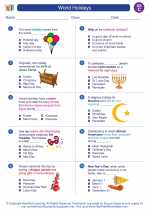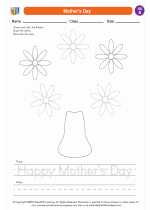Kwanzaa
Kwanzaa is a week-long celebration held in the United States and other nations of the African diaspora in the Americas. It is a cultural holiday that honors African heritage and is based on traditional African harvest festivals.
History
Kwanzaa was created in 1966 by Dr. Maulana Karenga, a professor of African studies, as a way to bring African-American communities together and celebrate their cultural heritage. The holiday is observed from December 26 to January 1, with each of the seven days focusing on a different principle, known as the Nguzo Saba.
Principles (Nguzo Saba)
- Umoja (Unity)
- Kujichagulia (Self-Determination)
- Ujima (Collective Work and Responsibility)
- Ujamaa (Cooperative Economics)
- Nia (Purpose)
- Kuumba (Creativity)
- Imani (Faith)
Celebration
During Kwanzaa, families and communities come together to light the seven candles of the kinara, a candle holder with one black, three red, and three green candles, representing the people, their struggle, and the future. Each day, a candle is lit and the corresponding principle is discussed and celebrated.
Study Guide
To learn more about Kwanzaa, you can:
- Research the history and origins of Kwanzaa
- Learn about each of the seven principles of Kwanzaa and their significance
- Discuss how Kwanzaa is celebrated in different communities
- Create a kinara and light the candles each day of Kwanzaa
- Explore traditional African crafts and art to celebrate Kuumba (Creativity)
- Reflect on the importance of unity, self-determination, collective work, and responsibility
- Interview family members or community members about their experiences and traditions related to Kwanzaa
By engaging in these activities, you can gain a deeper understanding of the cultural significance of Kwanzaa and its importance in celebrating African heritage.
.◂Social Studies Worksheets and Study Guides First Grade. Observance of Holidays

 Worksheet/Answer key
Worksheet/Answer key
 Worksheet/Answer key
Worksheet/Answer key
 Worksheet/Answer key
Worksheet/Answer key
 Worksheet/Answer key
Worksheet/Answer key
 Worksheet/Answer key
Worksheet/Answer key
 Worksheet/Answer key
Worksheet/Answer key
 Worksheet/Answer key
Worksheet/Answer key
 Worksheet/Answer key
Worksheet/Answer key
 Worksheet/Answer key
Worksheet/Answer key
 Coloring Worksheet
Coloring Worksheet
